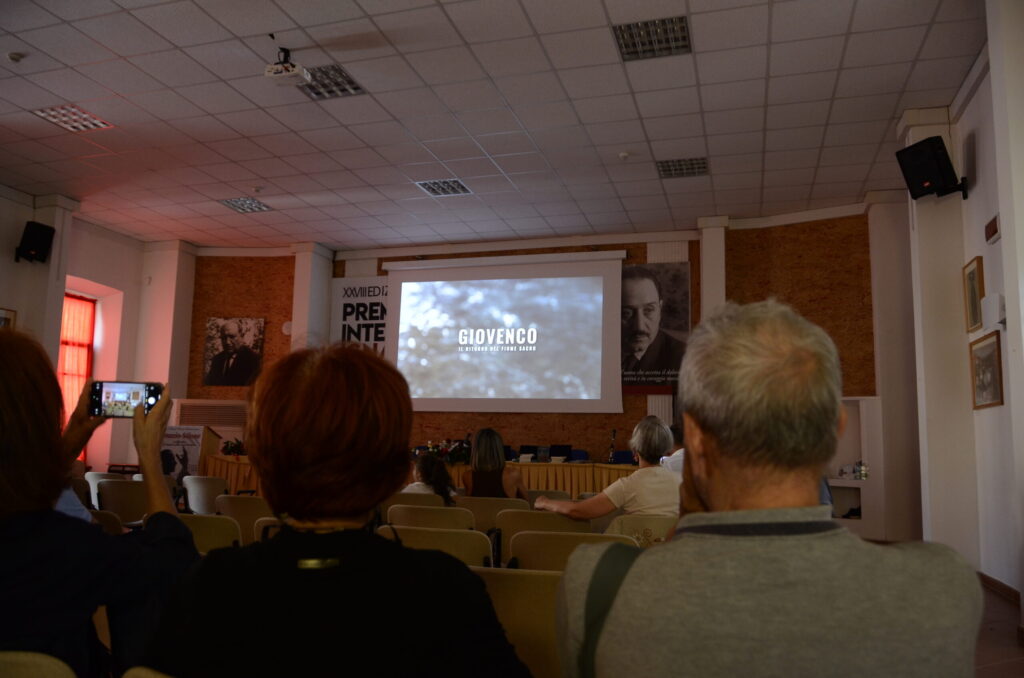The second edition of the international literary contest launched by Rewilding Apennines awards three works that celebrate rivers and river restoration.

On August 23, 2025, among the streets and squares of the historic center of Pescina, in the heart of the Giovenco Valley, the award ceremony for the second edition of “Wild Tales” took place, the international literary contest promoted by Rewilding Apennines. Following the success of the first edition, which focused on denouncing the use of poison against wildlife, this second edition invited authors to engage with the theme “River and River Restoration”, placing at the center of the narrative the vital role of waterways and the need to return to them their original ecological complexity.
Rivers are not just bodies of water: they are symbols of continuity, transformation, and the memory of the communities that live by them. Yet, decades of human interventions—channelization, water extraction, pollution—have profoundly altered their balance. Restoring vitality to rivers means not only fostering biodiversity but also rediscovering an authentic and mindful connection with our history and landscape. This message lies at the heart of the 13 stories received from 12 authors, all of which were moving in the depth of their themes and the sensitivity with which they portrayed the bond between people and rivers.
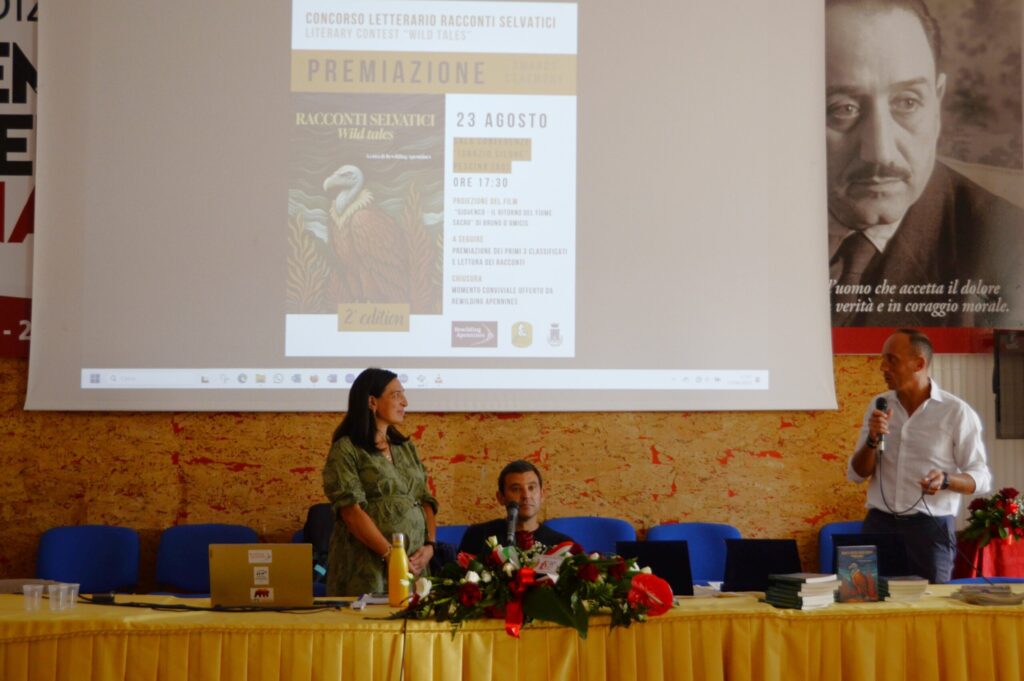
The jury, composed of Mario Cipollone (Team Leader of Rewilding Apennines and author of narrative works), Angela Tavone (Communication Manager of Rewilding Apennines), and Daniela Gentile (Communications Officer of Rewilding Apennines), faced a difficult choice. In the end, three stories stood out for their originality, narrative skill, and adherence to the theme of rewilding.
First prize: “Hold your breath with me”, by Samuele Cerquetti
“Hold your breath with me” manages to convey, in just two pages, the profound bond between water and life, to the point that the river – an abiotic environment, as ecologists would say – becomes the narrative voice, embodying the vitality of the countless organisms it hosts, which alone are granted its true name. Humanity appears at times as a foreign, overbearing, hostile presence, using the river like a servant, taking what it needs and mistreating the rest. In a moment of human weakness and fragility—paradoxically occurring at seventeen—the protagonist attempts suicide, creating the point of convergence between the soul of the unfortunate youth and the spirit of the water element into which he plunges to end his life. Despite being battered by pollution and human exploitation, the river sustains the young man in its waters, once again fulfilling its vital mission and preventing the tragic and unnatural act from succeeding.
Breath becomes the switch of life: the function that separates the river protagonist from the human protagonist. Holding one’s breath is the ability that allows immersion without drowning, the language used by both protagonists to communicate underwater, just long enough before returning to their own precious existence. The richness of the content in this short story is remarkable, yet the jury wishes to highlight only one additional point for reflection, leaving readers the pleasure of deeper discovery and analysis: time. Through the perspective of the narrative voice, the author conveys the river’s different perception of time, aware that, across geological eras, it will survive the disastrous human “management” it endures. Conversely, the human being returns years later, changed but recognizable, to repay and heal the river from the ills inflicted by humanity, such as pollution.
The story concludes with the human protagonist fulfilling his promise to repay the river that saved him, demonstrating that with goodwill, awareness, perseverance, and solidarity – represented by the involvement of others—surprising results can be achieved in a relatively short time. This embodies one of the principles of rewilding: the restoration of ecological functions for the benefit of ecosystems and the human communities that inhabit them, through corrective actions addressing human-induced alterations, while allowing nature to do the rest.
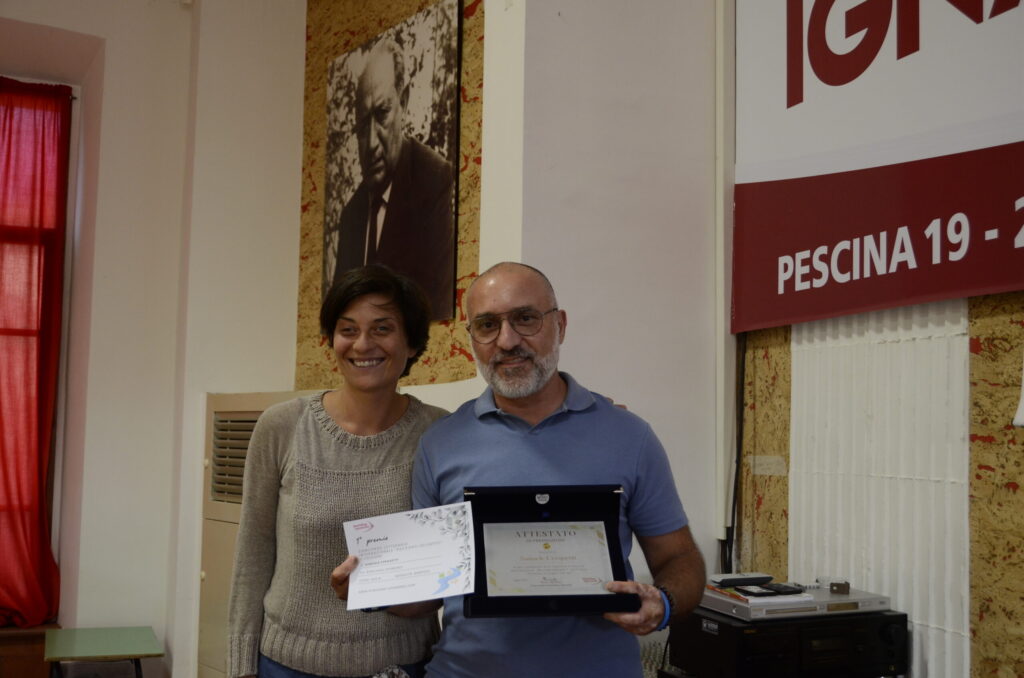
Second prize: “The strange case of the missing trout”, by Claudia Costa
In “The strange case of the missing trout”, the author tells, with a compelling rhythm beginning with the title—which evokes mystery, investigation, and discovery—the morning adventure of Luigi, a boy who skips school to heed “the call of nature,” represented for him by the river and fishing. The text implicitly highlights the well-being that proximity to natural elements provides to humans, especially children, and underscores the need to keep these environments as intact as possible so they can fully serve their beneficial role. Practical experiences in nature transmit lessons in a more direct, authentic, and lasting way than the largely theoretical education typical of the Italian school system.
Another key element of the story is memory, preserved by the grandparents, through the recollection of an animal as emblematic for aquatic wildlife as only apex predators can be: the otter. It is no coincidence that the protagonist’s parents’ generation either denied—or were denied—the presence of this evocative animal, sacrificed along with many other dependent species on the altar of economic development, which led to the disruption of the river ecosystem.
The author, a dedicated follower of rewilding principles, keenly observes the relationships between species and the quality of their habitats. Indeed, the story’s conclusion conveys certainty—more than hope—that the return of the otter, a phenomenon actually occurring across much of peninsular Italy, is the result of species protection measures and river restoration efforts. These efforts, often unrecognized by policymakers under pressure from unsustainable economic interests, are vital to safeguarding water resources, upon which the life and prosperity of civilizations depend.
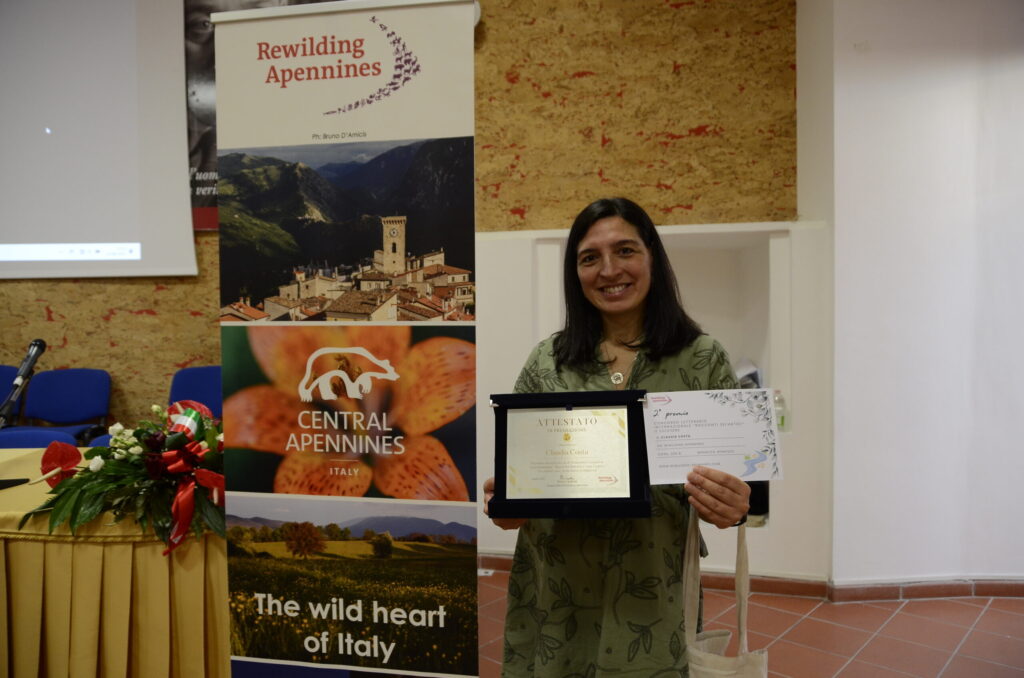
Third prize: “The amnesiac river”, by Fabiano Pirozzi
In “The amnesiac river”, the author confirms the musical register that characterizes his literary work. Words and the emotions they evoke transform into notes and musical pieces, a kind of enchantment that brings an inanimate being like the river to life without the reader noticing the trick. The central theme is the river’s amnesia, a metaphor for humanity’s collective forgetfulness: forgetting ancient relationships with nature, the daily gestures that once connected humans to water as a source of life and community.
When the river finally regains its memory, it is no longer just a watercourse following its curves—it becomes a symbol of humanity’s potential for redemption, acknowledging our capacity for atonement. The ironic tone the author imparts to the story tempers a serious theme—the violence of humans against nature, the forced containment of rivers, the loss of their vital role in the ecosystem—without ever becoming moralistic. Instead, the ecological message is transformed into a modern fairy tale, leaving the reader with a bittersweet aftertaste, but above all, a spark of hope.
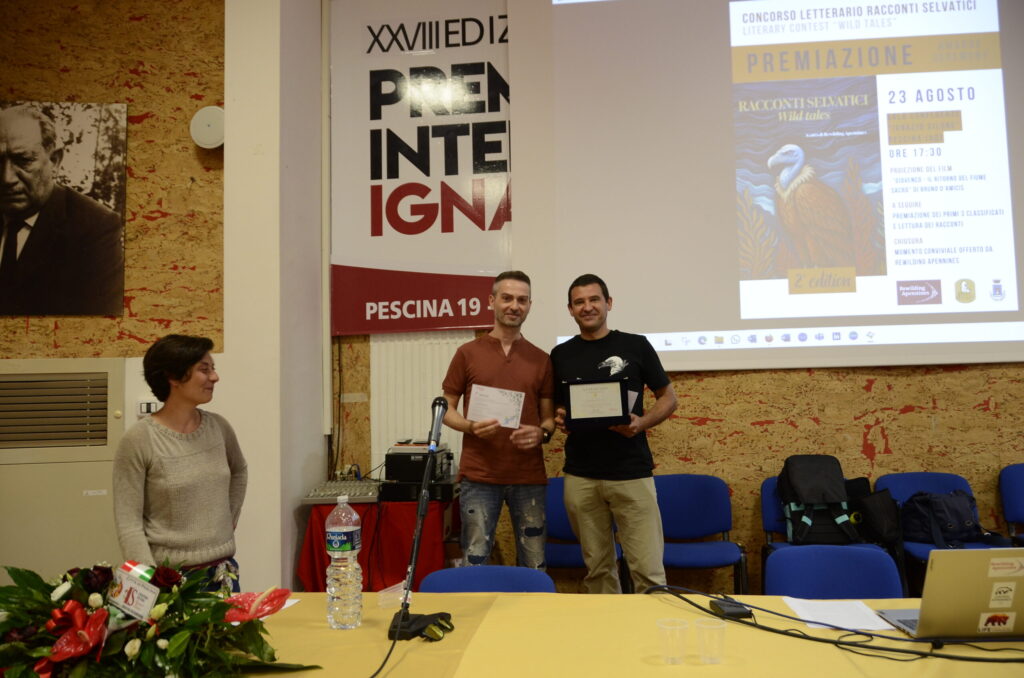
The ceremony was not limited to awarding the authors: the stories, read aloud, allowed everyone present to immerse themselves in the rivers’ tales and to feel, on an emotional level, the importance of their protection. The Giovenco Valley provided a meaningful backdrop, symbolizing both the beauty and fragility of river ecosystems, threatened by climate change, drought, and excessive water extraction—recently also at the center of a legal appeal against the irrigation project approved by the Abruzzo Region for the Piana del Fucino, which Rewilding Apennines, together with other associations, submitted to the Higher Public Water Court.
The jury emphasized that all the works will be widely shared, as was done with the first edition, whose texts were compiled into a bilingual volume thanks to collaboration with Edizioni Menabò. It can be purchased by writing to info@rewilding-apennines.com (cover price €12, plus shipping in Italy: €1.45 without tracking, €4.80 with tracking; shipping through Europe are also possible). The modest proceeds will contribute to the association’s initiatives for the protection and restoration of ecosystems.
This second edition of “Wild Tales” confirms that literature is not only entertainment but a powerful tool to raise awareness, move, and engage people on the topic of nature conservation and rewilding. Through the words of the authors, rivers speak again, reminding us that protecting biodiversity is a collective responsibility, but also a story of hope and renewal.
